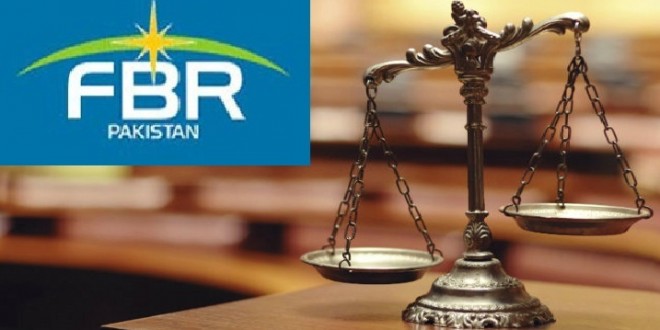- ‘How can a taxpayer defend himself during the audit process when parameters and reasons will not be disclosed to him?’
LAHORE: Putting the Federal Board of Revenue in trouble, the Lahore High Court on Thursday declared unconstitutional the FBR powers under 1A of Section 214C of Income Tax Ordinance 2001, to keep confidential the parameters under which the taxpayers are selected for audit.
The court also set aside all the notices issued under sub-section 1A of section 214c to various taxpayers selected for audit.
Justice Abid Aziz Sheikh partially allowed all the writ petitions moved by the taxpayers challenging the 1A of section 214C of Income Tax Ordinance 2001 by interpreting that the said law is a violation of Article 10-A and 19-A of the Constitution of Pakistan, which guarantees the right of a fair trial to every citizen, besides provision of all information.
Advocate Muhammad Ajmal Khan, the counsel of a taxpayer, argued that impugned provision of section 214C(1A) of the ordinance, which required the board to keep the parameters for selection of case for audit confidential, is ultra vires of the provision of articles 4, 8, 10-A, 19 and 19-A of the constitution.
He added that the decision of the board to keep the parameters for audit selection confidential is also against the law settled by the court.
Khan argued that all the laws, including Qanoon-e-Shahadat Ordinance, allowed the accused to know about the charges on them, but only the Income Tax Ordinance denied the information under which the taxpayers get trailed.
“How can a taxpayer defend himself during the audit process when parameters and reasons will not be disclosed to him?” Advocate Khan concluded.
Naveed A Andrabi, an advocate for another petitioner, submitted that the provision of section 214C(1A) is a violation of the petitioner’s fundamental right of a fair trial and due process guaranteed under Article 10-A of the Constitution. “Even the petitioner’s right of business, under Article 18 of the Constitution, has been infringed as petitioners have unnecessarily been forced into giving the details of their accounts without any specific allegation.”
The FBR counsels on the occasion opposed the petitions by arguing that mere selection for audit does not cause any actionable injury to taxpayers. “Submits that guidelines for selection of audit are administrative in nature and meant only for internal consumption of tax authorities, therefore, no fundamental right of petitioners has been infringed for not disclosing said guidelines.”
The court, after hearing the detailed arguments, held that the impugned orders for not disclosing the specific parameter applied to petitioners for selection of their cases for audit under section 214C of the ordinance are “declared to be illegal and without lawful authority and therefore set aside”.
The court held that the impugned provision is construed and read down to the effect that under subsection (1A) of section 214C of the ordinance, the board shall keep the parameters confidential. However, once persons or classes of persons are selected for audit under section 214C of the Ordinance, they shall be informed about the particular risk parameter applied to them for selection of audit.
The judgment directed the board to inform the petitioners forthwith if requested by them, the specific parameters on the basis of which their cases were selected for audit under section 214C of the ordinance.





Excellent informqtion useful.thanks.
Thanks for the timely update.